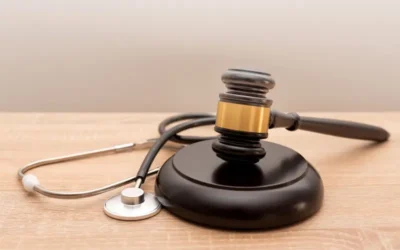What is a medical record review? It involves evaluating a patient’s healthcare information for medical or legal purposes. Medical records or the patient’s medical chart contain significant information about the patient’s diagnosis, medical and social history, tests and imaging studies conducted for the diagnosis, medications prescribed, and the medical exams performed by various medical professionals. This review is important from a medical point of view because it is based on the information extracted from the records that the best treatment course is planned for the patient.
For attorneys, medical record review is important to understand the various medical aspects of the personal injury, medical malpractice, mass tort cases they are handling. The review itself is done by trained and experienced professional medical record reviewers comprising registered nurses, therapists, or other healthcare professionals. Medical record review performed for insurance purposes would include certified medical coders also, knowledgeable in state and federal Medicaid regulations and policy as well as the policies of private insurers. A medical chart review done for insurers would focus on coding errors and medically unnecessary services.
What are the medical documents reviewed by an expert medical reviewer or a medical record review company?
Medical records include all documents related to a patient’s care and treatment in various healthcare facilities. So, typically these include:
- The patient’s medical records
- Records from the healthcare facilities where the patient was provided treatment
- Communication between various facility representatives, attending physicians, and other healthcare staff
- Any kind of communication, both written and electronic, between the treating physicians, the patient’s family, and various representatives of healthcare facilities
The medical records required for review include the following.
- Notes from treating physicians
- Nurses’ records
- Anesthesia records
- Surgery records
- Reports from radiologists
- Notes from therapists
- Prescription orders
- Lab reports
- Consent forms
- Hospital bills
- Correspondence between healthcare providers
- Patient consent forms
- Authorization requests
- Accident reports
- Ambulance reports
- Reports from paramedics
The Medical Records Review Process
Once the medical records are obtained from various medical record custodians, the following are the steps involved.
- Identify the medical record components
- Medical record organization in a chronological manner which provides a clear timeline regarding the patient’s medical journey.
- Develop medical case chronology and timeline as required by each client. This chronology is prepared in a way that people with a non-medical background can follow easily. Moreover, you can also find information such as the patient’s medical history, family and social history and allergy information.
- If any records are in the form of dictated notes or interviews, these will be transcribed and interpreted.
- Classify information by data type, referencing the type of service, provider of service, place of service, and date of service.
- Extract information such as patient demographics, medical care provided, diagnostic procedures including lab tests, imaging studies and so on.
- Preparation of medical case summary that provides the medical facts in a nutshell so that it is easy for attorneys and healthcare practitioners to review and understand.
- Hyperlinking or creating bookmarks so that it is easy for the attorney or physician to navigate between the summary and the source records quickly and effortlessly.
- A multilevel quality audit process is carried out to prevent any human errors from creeping into the final medical review report.
- The detailed review process will bring to light missing records if any, as well as treatment inconsistencies.
- A list of all records and documents reviewed is prepared.
- Witness reports are reviewed and compared.
All information extracted is reviewed for accuracy, completeness and compliance.
Why Is a Medical Record Review Significant?
- An accurate medical record review enables an attorney to determine the merit of the case in hand and whether it is worthwhile pursuing it.
- The various factors that contributed to an injury or damage in a personal injury/medical malpractice/mass tort case can be correctly identified.
- The necessity and appropriateness of the medical care provided, causality, and relatedness can be clearly understood.
- When an injury is involved, a medical record review helps evaluate the severity of the injury, its impact on the patient’s life and ability to work and earn a living.
- Study of the medical facts helps determine whether the situation stemming from alleged medical negligence is related to some pre-existing condition of the patient.
- Another important use of a medical record review is that it helps identify whether there has been any deviation from the expected standard of patient care and resultant malpractice.
What Makes Review of Medical Records Challenging?
- Voluminous, unorganized medical data
- Management and proper organization of the medical documentation
- Absence of medical expertise
- Difficulty in understanding handwritten notes, medical jargon, and medical abbreviations
- Hybrid records, in both paper and digital formats
- Difficulty in justifying factors responsible for the injury
- Highly time-consuming activity
- Difficulty in identifying missing or misplaced records
- Challenge posed by complicated cases
- HIPAA compliance requirements
For a medical record review to be efficient and serve its purpose, accurate medical records are indispensable. It is important to handle these documents very carefully. In fact, for a physician, the medical chart of a patient is the only resource that can prove that patient care was provided appropriately, following a proper and effective treatment plan formulated in keeping with the diagnosis. The review enables attorneys to prepare well for a successful deposition and trial. It is on the basis of the medical evidence obtained via the review that attorneys can establish liability and damages and ensure fair compensation for their clients.
The process of reviewing medical records is not easy; therefore, it is best carried out by a professional medical review company which employs experts in the medical field who are familiar with complex medical terminology, and medical jargon and can create summaries and reports that are easily legible for attorneys.




